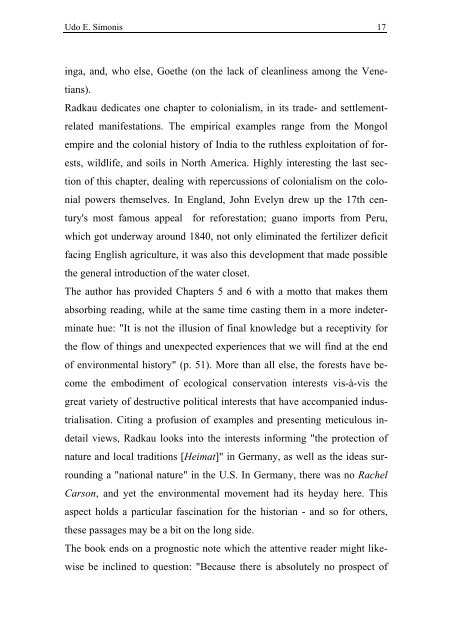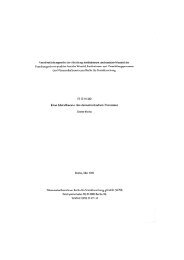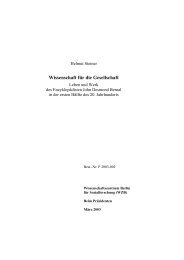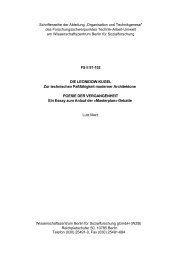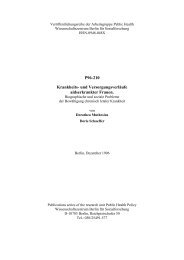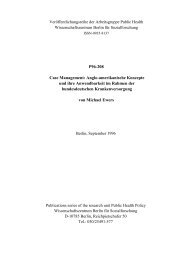New seminal environmental works. Nine review articles. - WZB
New seminal environmental works. Nine review articles. - WZB
New seminal environmental works. Nine review articles. - WZB
Create successful ePaper yourself
Turn your PDF publications into a flip-book with our unique Google optimized e-Paper software.
Udo E. Simonis 17<br />
inga, and, who else, Goethe (on the lack of cleanliness among the Vene-<br />
tians).<br />
Radkau dedicates one chapter to colonialism, in its trade- and settlement-<br />
related manifestations. The empirical examples range from the Mongol<br />
empire and the colonial history of India to the ruthless exploitation of for-<br />
ests, wildlife, and soils in North America. Highly interesting the last sec-<br />
tion of this chapter, dealing with repercussions of colonialism on the colo-<br />
nial powers themselves. In England, John Evelyn drew up the 17th cen-<br />
tury's most famous appeal for reforestation; guano imports from Peru,<br />
which got underway around 1840, not only eliminated the fertilizer deficit<br />
facing English agriculture, it was also this development that made possible<br />
the general introduction of the water closet.<br />
The author has provided Chapters 5 and 6 with a motto that makes them<br />
absorbing reading, while at the same time casting them in a more indeter-<br />
minate hue: "It is not the illusion of final knowledge but a receptivity for<br />
the flow of things and unexpected experiences that we will find at the end<br />
of <strong>environmental</strong> history" (p. 51). More than all else, the forests have be-<br />
come the embodiment of ecological conservation interests vis-à-vis the<br />
great variety of destructive political interests that have accompanied indus-<br />
trialisation. Citing a profusion of examples and presenting meticulous in-<br />
detail views, Radkau looks into the interests informing "the protection of<br />
nature and local traditions [Heimat]" in Germany, as well as the ideas sur-<br />
rounding a "national nature" in the U.S. In Germany, there was no Rachel<br />
Carson, and yet the <strong>environmental</strong> movement had its heyday here. This<br />
aspect holds a particular fascination for the historian - and so for others,<br />
these passages may be a bit on the long side.<br />
The book ends on a prognostic note which the attentive reader might like-<br />
wise be inclined to question: "Because there is absolutely no prospect of


